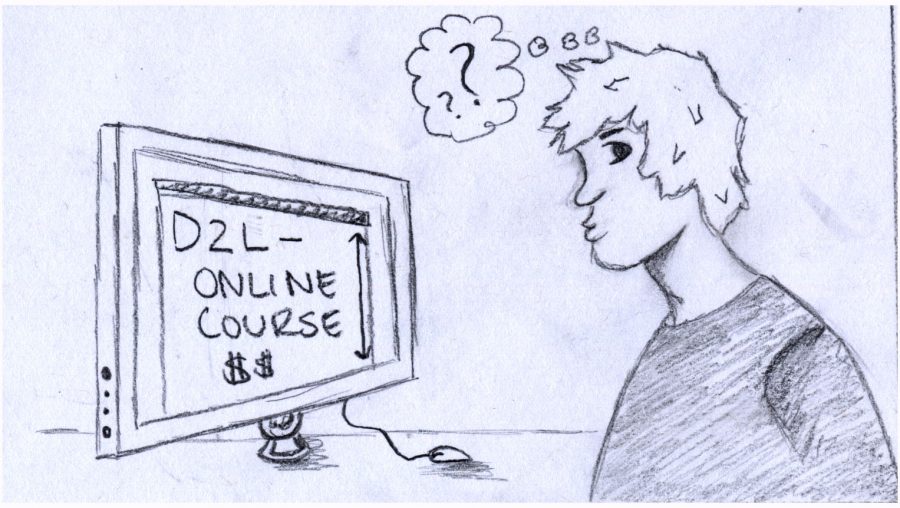Jan. 29, 2014
Editorial Staff Opinion
In this age of advanced technology, it seems logical that classes would move onto the Internet and turn college into a more online experience, but this idea is leading us down the wrong path.
Taking online classes is a necessity for some students, but in terms of academic value, online classes pale in comparison to their offline counterparts.
The major draw of online classes is the convenience of working through the whole class from home. Online classes can be especially important for commuters, who make up a significant portion of the UW-Whitewater student body.
Although this is a legitimate advantage for some students, it does not cancel out the drawbacks that come with online classes.
There are additional “technology” fees for online classes. For students that are already, in most cases, saddled with debt, this is not something that should be glossed over.
These fees vary greatly depending on the class. According to the Whitewater Information Network for Students, commonly referred to as WINS, online classes for Coaching come with a $50 per credit fee.
For a course in Business Administration, the fee is $375 per credit, according to the 2012-14 Undergraduate catalog provided by the Registrar’s Office.
A three credit course could add more than $1,000 to a student’s tuition. Another $1,000 for school may not seem like a lot to students that already have a significant amount of debt, but it is not a number that should be ignored.
It does not make sense that additional fees should accompany online classes. Most offline classes utilize the D2L system as well, so it is hard to imagine what the fees are used for.
If anything, it would seem more logical that it would cost more to use the physical space of a classroom rather than to utilize technology that offline classes are using as well.
Another aspect of offline classes that trump online ones is the classroom experience. In an era when students are engulfed in the world of social media on their phones and other gadgets, the physical contact made with other students in the classroom is something that is taken for granted.
Senior Kyle Ahrens, a commuter taking five online courses this semester, said face-to-face interaction is what he dislikes the most about online classes.
“I miss the classroom,” Ahrens said. “I miss going in and being able to meet new people. Online classes don’t give you that opportunity.”
Offline classes also can allow students the freedom to ask professors questions in real time. If something does not make sense to a student, it is much easier to raise their hand and ask a question than to send an email and wait for a response.
For professors, a lack of in-person meetings can cause similar issues.
Dr. Jolly Emrey, chairperson of the Political Science department, said a traditional classroom allows for more flexibility in terms of teaching speed if the students are struggling with the material.
“When I’m teaching face-to-face in the classroom, I have a better sense of whether or not students are understanding the material,” Emrey said. “There’s more opportunity for immediate feedback in a traditional classroom experience.”
Although there are some advantages to taking online classes, such as the convenience for commuters and opportunity for students to work at their own pace, the negatives of online classes outweigh the positives.


